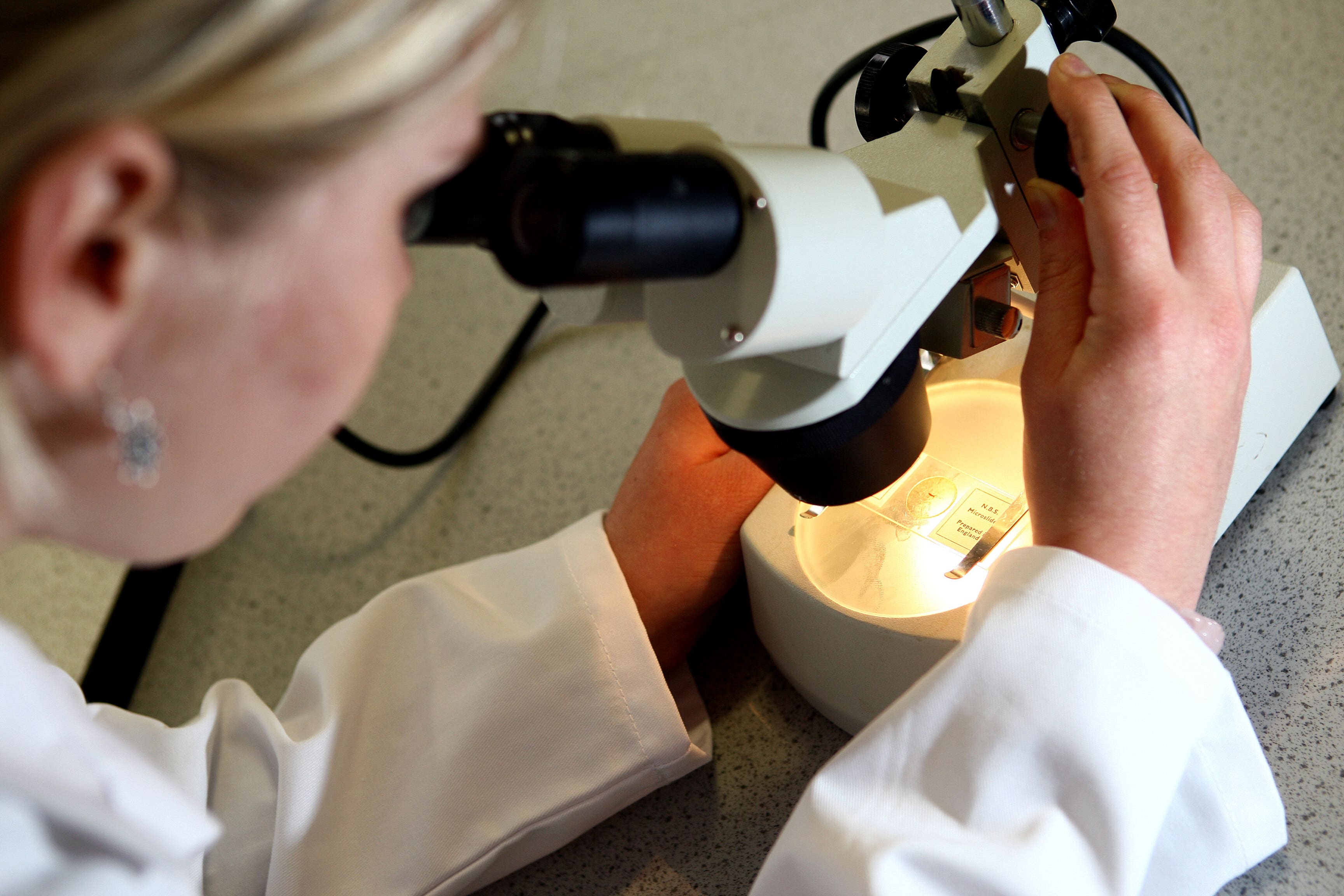Scientists concerned boom in labs handing deadly germs not matched by regulation
There are more than 100 labs around the world working with dangerous pathogens, according to a new report.

Your support helps us to tell the story
From reproductive rights to climate change to Big Tech, The Independent is on the ground when the story is developing. Whether it's investigating the financials of Elon Musk's pro-Trump PAC or producing our latest documentary, 'The A Word', which shines a light on the American women fighting for reproductive rights, we know how important it is to parse out the facts from the messaging.
At such a critical moment in US history, we need reporters on the ground. Your donation allows us to keep sending journalists to speak to both sides of the story.
The Independent is trusted by Americans across the entire political spectrum. And unlike many other quality news outlets, we choose not to lock Americans out of our reporting and analysis with paywalls. We believe quality journalism should be available to everyone, paid for by those who can afford it.
Your support makes all the difference.The number of labs handling deadly germs has risen to more than 100 globally, raising concerns among scientists that this boom is not being matched by security and safety regulations.
A report published by Kings College London has found that the number of BSL4 (biosafety level 4) labs – which handle pathogens of the higest risk – in operation, under construction or planned has grown by 10 in two years, from 59 across 23 countries in 2021 to 69 across 27 countries, it said.
But this boom has not been accompanied by sufficient oversight, raising biosafety and biosecurity concerns, the Global BioLabs Report 2023 added.
Dr Filippa Lentzos, who is the author of the report, said: “We’re seeing rapid expansion of max containment labs in Asia but many of these countries score poorly on biorisk management.
There has been a global boom in construction of labs handling dangerous pathogens, but this has not been accompanied by sufficient biosafety and biosecurity oversight
“We found biosafety governance to be stronger than biosecurity, while the weakest component is the management of dual-use research of concern.”
She added: “There has been a global boom in construction of labs handling dangerous pathogens, but this has not been accompanied by sufficient biosafety and biosecurity oversight.
“Our new report documents for the first time the current picture around the world and sets out clear recommendations to help address current shortcomings that need to be implemented at the local, national and international level.”
The report also found that three-quarters of these labs are in urbanised areas, which increases the risk of any accidental releases of pathogens having a more devastating impact.
It also highlights the rise in use of a new type of high-containment lab, known as BSL3+ or BSL3-enhanced, which adopts additional precautions when carrying out especially risky research.
There are currently 57 BSL3+ labs around the world – mainly in Europe and most in urban centres.
But the scientists said there are very few guidelines for what constitutes a BSL3+ lab and no evidence that the measures being taken in these facilities are adequate for the research they carry out.
Project-co lead Dr Gregory Koblentz of the Schar School of Policy and Government at George Mason University in the US, said: “We urgently need coordinated international action to address increasing biorisks.”
The scientists are calling for labs conducting high-risk work to adopt the international standard for biorisk management as well as for the World Health Organisation (WHO) to develop criteria and guidance for BSL3+ labs.
It comes as the ongoing debate into the origins of Covid-19 continues, with many questioning whether Sars-CoV-2 – the virus that causes Covid-19 – accidentally emerged from a lab.